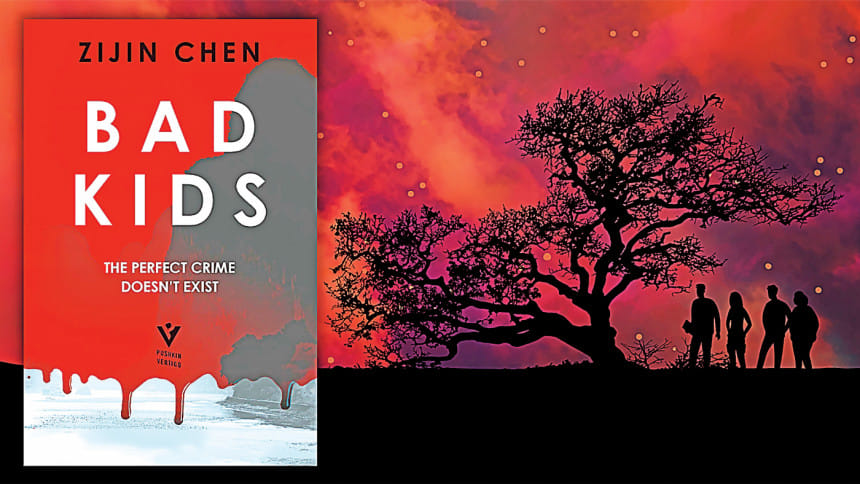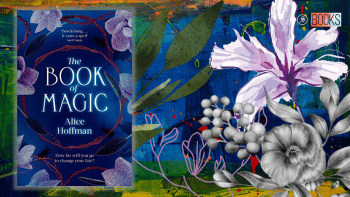Bad kids, worse adults

If you are looking for something different from your next read—especially if you're interested in reading a story that offers a window into another Asian culture—then Bad Kids by Zijin Chen might be a good choice. This book was an instant bestseller when it was published in China, and has since been adapted for the small screen.
I should start by mentioning that the book's title is misleading, as the kids are not so easily pigeonholed. Far from it. The absorbing and highly eventful narrative keeps the reader on the edge of her seat up to the very last page. And while the concept behind the story is relatively simple, its execution is anything but.
Chaoyang is a bright 13-year-old who is having a bad time at school. Widely considered a nerd, he is singled out for bullying by the daughter of a high-level police officer. The girl is jealous of his excellent academic results. And his dubious social status as the son of divorced parents in a China where conservative social values still hold sway makes the boy particularly vulnerable to such behaviour, as his plight garners little sympathy from his teachers.
To make matters worse, Chaoyang's wealthy father provides very little support to the boy and his mother, forcing the latter—despite being a single parent—to often spend days away from home in order to meet the requirements of her job. Meanwhile, Chaoyang's neglectful father and unpleasant stepmother dote on their own 10-year-old daughter, who is not even aware that she has a brother!
Alone and friendless, Chaoyang is surprised at home one day when a friend of his comes to visit after a gap of several years. It turns out that this 13-year-old boy, Ding Hao, is on the run with a young girl of about 11, who is nicknamed Pupu. The pair have escaped from a state institution where they were placed after their parents were incarcerated or executed for violent crimes.
Initially unwilling, Chaoyang nevertheless allows them to hide out at his place. The trio quickly become fast friends, and one day Chaoyang takes Ding Hao and Pupu for a day out at the National Park where his mother works. While they are touring the sightseeing area, an unfortunate accident occurs, two elderly tourists falling to their death during their son-in-law's attempt to take a scenic picture.
The children return home to find that in the background of a video featuring their various antics, a man can be seen pushing the elderly couple over the edge. What the children don't fully realise is the darkness they will be led into through this incident.
This is a well-plotted book, with a remarkable number of twists and turns, and all four of the main characters are brought vividly to life. The supporting characters—who include the killer's wife, Chaoyang's parents, stepsister and stepmother, his classmates, and the police officers involved in the case—are also well-drawn, and linger in the reader's mind.
It was particularly interesting to learn about contemporary China through the eyes of these children, and to witness the ways in which the authorities puzzle over the complexity of these multiple cases which they are not even aware are linked.
Despite the occasional quirk inevitable in a translated work, which makes some of the dialogue seem a little stiff, this is a fast-paced read, and quite gripping. The complexity of the plot is belied by the ease with which the story can be breezed through.
I highly recommend the book to anyone who enjoys coming-of-age stories featuring complicated family dynamics, a dramatic storyline incorporating murder and blackmail, and good storytelling that combines psychological insights and crime thriller elements. If that sounds like a wild ride, let me assure you that it is—and an immensely entertaining experience, too!
Farah Ghuznavi is a writer, translator and development worker. Her work has been published in 11 countries across Asia, Africa, Europe and the USA. Writer in Residence with Commonwealth Writers, she published a short story collection titled Fragments of Riversong (Daily Star Books, 2013), and edited the Lifelines anthology (Zubaan Books, 2012). She is currently working on her new short story collection and is on Instagram @farahghuznavi.

 For all latest news, follow The Daily Star's Google News channel.
For all latest news, follow The Daily Star's Google News channel. 









Comments